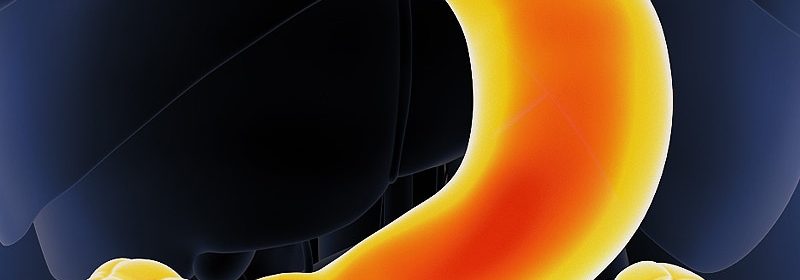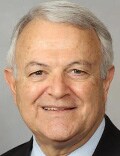ACG Releases New Gastroparesis Guidelines

The American College of Gastroenterology (ACG) issued new clinical practice guidelines for gastroparesis, which is characterized by symptoms suggesting retention of food in the stomach and evidence of delayed gastric emptying.
The guidelines were based on scientific evidence and expert consensus among a panel of US gastroenterology and hepatology experts and represent the official practice recommendations of the ACG. Although these guidelines should be considered as preferred, the authors do acknowledge that they are not the only approaches to gastroparesis.
Michael Camilleri, MD
“Advances over the last 10 years necessitated updating the guidelines, particularly in relation to state-of-the-art diagnosis and treatment, including pharmacological treatments, devices, and endoscopic or surgical interventions,” Michael Camilleri, MD, the lead author and professor of gastroenterology and hepatology and a distinguished investigator at the Mayo Clinic, told Medscape Medical News.
“There have been advances that inform patients and their providers on the current state of management,” he said. “However, there is still considerable unmet need in terms of improving pharmacotherapy and individualizing the treatment of gastroparesis, including the application of medication and endoscopic treatment.”
The guidelines were published online in The American Journal of Gastroenterology.
Recommendations for Diagnosis
The guideline authors screened more than 1900 references in the scientific literature, looking for original research on the incidence, diagnosis, and treatment of gastroparesis in adults. They placed emphasis on studies published after the previous ACG guideline in 2013.
The committee assessed 121 references using the Grading of Recommendations, Assessment, Development and Evaluation (GRADE) process and relied on expert consensus to develop 20 key concept statements.
The chronic symptoms associated with gastroparesis include postprandial fullness, nausea, vomiting, and upper abdominal pain.
After exclusion of mechanical obstruction, several tests are available to objectively document the presence of delayed gastric emptying, the authors write. The gold standard is scintigraphic assessment, which includes appraising the emptying of a solid meal over a duration of 3 hours or more.
Wireless motility capsule testing may serve as an alternative to scintigraphic assessment.
A stable isotope (C-spirulina) breath test can be reliable for evaluating gastroparesis. It is also approved for use in children, the recommendations note.
Electrogastrography (EGG) could play a complementary role in identifying the pathophysiologic mechanism of gastric function, but it’s unclear whether the information is clinically meaningful. Ongoing studies of high-resolution EGG could clarify this, the authors write.
Radiopaque marker testing is not suggested for diagnostic evaluation of gastroparesis, the authors say. In addition, retained gastric food is frequently identified during esophagogastroduodenoscopy, but it shouldn’t be used as a diagnostic. Full-thickness biopsies aren’t recommended and should be reserved for research purposes to better understand the causes, identify biomarkers, guide therapy, and predict outcomes.
Recommendations for Management
Dietary management of gastroparesis should include a small-particle diet to increase likelihood of symptom relief and enhance gastric emptying, progressing from oral nutrition to jejunal nutrition and parenteral nutrition. The primary role of maintaining or reinstating oral intake is recommended to reduce morbidity and mortality risks.
Avoidant and restrictive food intake disorder symptoms are frequent in patients with gastroparesis, and European guidelines recommend that eating disorders should be considered, the authors note.
In patients with diabetic gastroparesis, optimal glucose control is suggested to reduce the future risk for aggravation. Continuous subcutaneous insulin infusion and continuous glucose monitoring seems to be safe, with minimal risk for hypoglycemic events, along with associated improvements in glycemic control, gastroparesis symptoms, quality of life, and meal tolerance, the authors write.
Pharmacologic Agents
In patients with idiopathic and diabetic gastroparesis, pharmacologic treatment should be considered to improve symptoms, based on the benefits and risks of treatment.
The guidelines suggest treatment with metoclopramide over no treatment for management of refractory symptoms. Metoclopramide is the only US Food and Drug Administration (FDA)–approved medication for the treatment of gastroparesis. The FDA has warned about the risk for side effects, including tardive dyskinesia, particularly among high-risk groups such as older women, patients with diabetes, patients with liver or kidney failure, and patients receiving antipsychotic drug therapy. Newer trials with the intranasal formulation show that the most common adverse effects are dysgeusia, headache, and fatigue.
Domperidone is available for gastroparesis treatment under a special FDA program. In clinical trials, domperidone has been associated with symptom improvement, as well as a reduction in the frequency and intensity of symptoms.
Prokinetic agents, such as 5-HT4, have shown symptomatic benefit in clinical trials, though the data were inconsistent. Generally, the guidelines recommend treatment over no treatment to improve gastric emptying.
Motilin agonists, which include erythromycin, clarithromycin, and azithromycin, are generally used for short-term treatment (1-4 weeks) owing to development of tachyphylaxis.
Antiemetic agents are suggested for improved symptom control, though they don’t improve gastric emptying, the recommendations note.
Central neuromodulators, such as nortriptyline, are not recommended for managing gastroparesis, and current data do not support the use of ghrelin agonists or haloperidol. There is insufficient evidence to support routine clinical use of autoimmune therapies as well.
Nonpharmacologic Therapy
Gastric electric stimulation may be considered for symptom control as a humanitarian use device.
Acupuncture alone or combined with prokinetic drugs may be beneficial for symptom control in patients with diabetic gastroparesis but cannot be recommended as beneficial for other etiologies of gastroparesis.
Herbal therapies, such as rikkunshito or Iberogast, should not be recommended for treatment.
EndoFLIP evaluation may help clinicians select patients for pyloromyotomy or pyloric botulinum toxin injection. Another recommendation discourages pyloric botulinum injections on the basis of randomized controlled trials, but the authors also note that a recent large multicenter study from France documents its benefits, especially to relieve vomiting, when patients are selected on the basis of measurements of pyloric distensibility.
Gastric per-oral endoscopic myotomy, or G-POEM, may improve symptoms and gastric emptying, although most studies only focused on durations of 3-6 months.
Future studies will evaluate the diagnostic value of wireless motility capsule testing, as well as opportunities for individualized patient treatment based on circulating antibodies, measurements of the pylorus and high-resolution antropyloroduodenal manometry, high-resolution electrical mapping, and full-thickness antral and pyloric biopsies, the authors conclude.
Additional research may clarify the role of immunotherapies, novel pharmacologic agents, pyloric interventions, bioelectric therapy, and surgical approaches, they write.
Jay Pasricha, MBBS, MD
Reached for comment, Jay Pasricha, MBBS, MD, director of research for neurogastroenterology at Johns Hopkins Medicine, told Medscape Medical News, “This update is a much-needed and comprehensive review of much of the recent evidence and should be very valuable to clinicians interested in taking care of these patients after considering the evidence and rationale behind these recommendations.”
“Gastroparesis is no longer a black box,” he said. “Although we have long way to go still, advances are being made that have the potential of helping patients today.”
The authors receive funding from the National Institutes of Health for studies on gastroparesis. Camilleri listed potential competing interests, including single-center research studies for Allergan, Takeda, and Vanda, and consulting with compensation to his employer for Takeda and Alpha Sigma Wasserman. Pasricha reports no relevant financial relationships.
Am J Gastroenterol. Published online August 1, 2022. Full text
Carolyn Crist is a health and medical journalist who reports on the latest studies for Medscape, MDedge, and WebMD.
For more news, follow Medscape on Facebook, Twitter, Instagram, and YouTube
Source: Read Full Article

